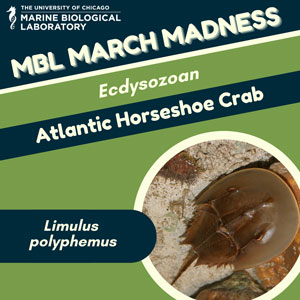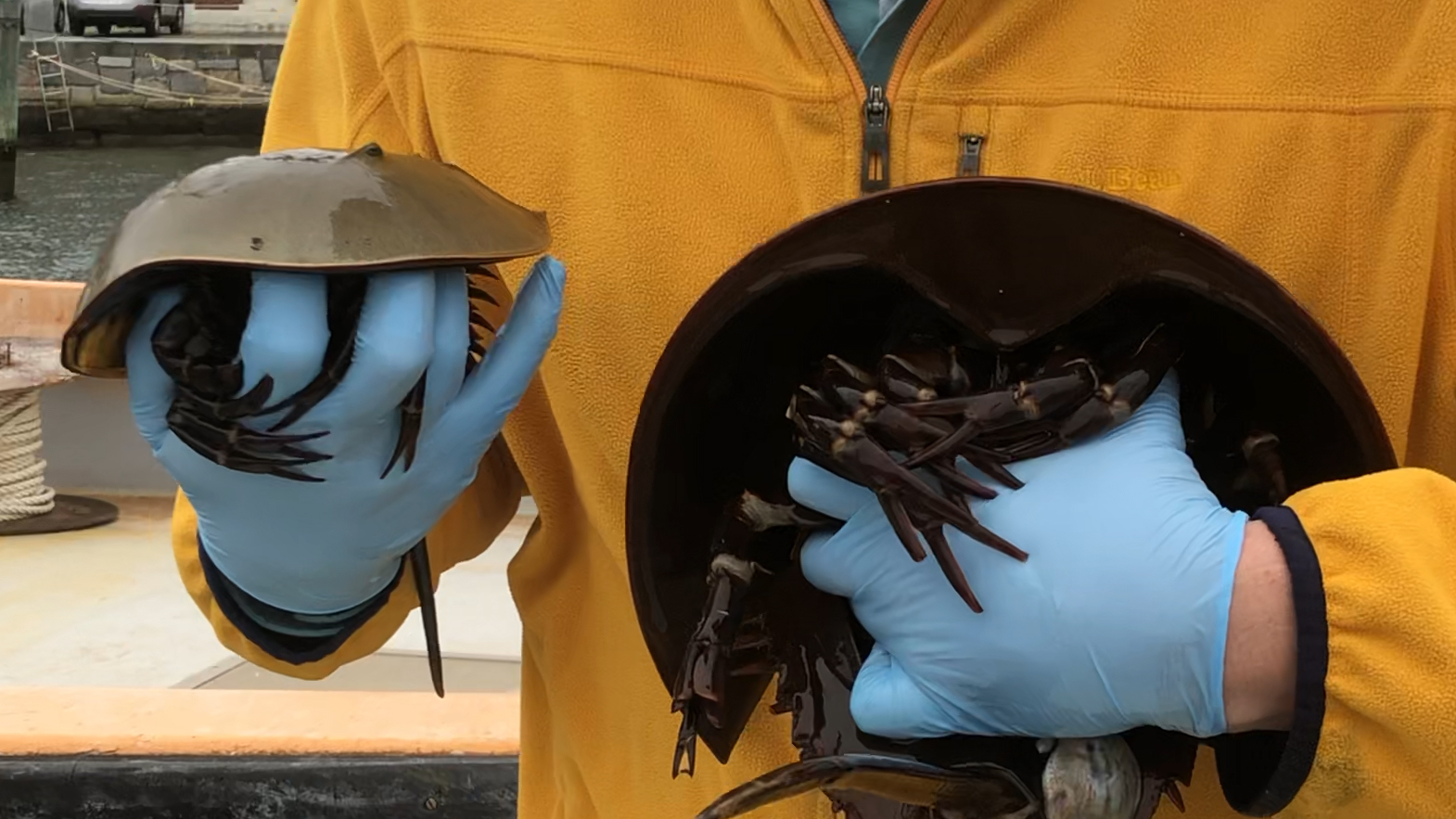MBL March Madness: Atlantic Horseshoe Crab


We call them crabs, but Limulus polyphemus are more closely related to spiders and scorpions than true crabs. The blood of Limulus polyphemus is used in biomedical research to test pharmaceuticals and medical devices for potentially deadly endotoxins. This test, called the Limulus Amebocyte Lysate (LAL) takes advantage of the horseshoe crab’s primitive immune system, which causes its blood to clot when it encounters potentially harmful gram-negative bacteria.
Cool facts
-
- It’s a “living fossil” and has been on Earth more than 445 million years—longer than dinosaurs. It survives today almost identical to its ancient ancestors.
- It has blue blood because it has the protein hemocyanin, which is copper-rich vs. humans’ red blood, which has the iron-based hemoglobin protein.
- Its blood contains amebocytes, which play a similar role to the white blood cells of vertebrates in defending the organism against pathogens.
(ID Card Photo Credit: Hans Hillewaert, Wikimedia Commons, CC License)
More about horseshoe crabs and the MBL
Horseshoe Crab Biology | MBL SciShoots
Horseshoe Crab Blood | MBL SciShoots
Looking for Life on Mars: The blood of the primitive horseshoe crab may help NASA in the search for life on other planets | MBL Archives
 MBL's Dave Remsen holds a pair of horseshoe crabs. Credit: MBL
MBL's Dave Remsen holds a pair of horseshoe crabs. Credit: MBLSelect Publications
Armstrong PB, Quigley JP. (1999) Alpha2-macroglobulin: an evolutionarily conserved arm of the innate immune system. Dev Comp Immunol. doi.org/10.1016/s0145-305x(99)00018-x
R L Ornberg, T S Reese (1981) Beginning of exocytosis captured by rapid-freezing of Limulus amebocytes.. J Cell Biol. doi.org/10.1083/jcb.90.1.40
Armstrong P.B. (2006) Proteases and protease inhibitors: a balance of activities in host-pathogen interaction. Immunobiology. doi.org/10.1016/j.imbio.2006.01.002
Quigley JP, Armstrong PB. (1983) An endopeptidase inhibitor, similar to mammalian alpha 2-macroglobulin, detected in the hemolymph of an invertebrate, Limulus polyphemus. J Biol Chem. pubmed.ncbi.nlm.nih.gov/6190805/
Division: Ecdysozoa
Ecdysozoans are the largest group within the animal kingdom and comprises arthropods (insects, spiders, and crustaceans), as well as nematodes such as roundworms. All organisms in the Ecdysozoan superphylum have an exoskeleton and shed or molt that cuticle layer in order to grow. Learn more about Ecdysozoans here.
Meet the Other Ecdysozoan Organisms
-
- Beach Hopper (Parhyale hawaiensis)
- American Lobster (Homarus americanus)
- Sea Spider (Pycnogonida pantopoda)
What is MBL March Madness?
Based on the March Madness NCAA basketball tournament, during MBL March Madness, popular MBL organisms face off for your votes. YOU have the opportunity to decide what organism is crowned victorious by voting for your favorite organisms in a series of head-to-head match-ups. Voting will take place on the MBL social media channels from March 29 - April 7.